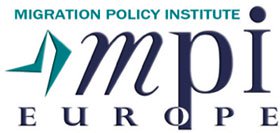MPI Europe Webinar
Opening More Avenues for Protection for Refugees
Multimedia Tabs
Nathan Benson, Legal and Research Director, University of Ottawa Refugee Hub (opening comments)
Susan Fratzke, Senior Policy Analyst, Migration Policy Institute (MPI)
David Manicom, Special Advisor, Resettlement and Complementary Pathways, United Nations High Commissioner for Refugees
Rebecca Granato, Associate Vice President for Global Initiatives, Bard College
Etienne Serubungo, Refugee Speaker
Hanne Beirens, Director, MPI Europe
As of mid-2020, more than 20 million refugees were displaced to another country and under the mandate of UNHCR, the UN Refugee Agency. While some may eventually return to their countries of origin or integrate locally into their host community, for the most at risk, resettlement remains a critical tool to secure legal status and access to fundamental rights in a third country. However, the number of resettlement places made available remains far below the level needed and plunged during the COVID-19 pandemic.
This global scarcity in resettlement places has been paralleled by innovation. States have shown creativity in designing resettlement programs and in growing access to protection via complementary pathways, including educational and employment ones. The Three-Year Strategy (2019–2021) on Resettlement and Complementary Pathways, launched following the adoption of the Global Compact on Refugees in 2018, aims to achieve more resettlement opportunities for refugees, as well as better access for refugees to complementary pathways. To support the goals of the Three-Year Strategy, the Sustainable Resettlement and Complementary Pathways Initiative (CRISP), led by UNHCR and the International Organization for Migration (IOM), provides support to states and key stakeholders to establish, expand, or renew resettlement programs and advance complementary pathways of admission.
This Migration Policy Institute Europe webinar marked the launch of a report that sets out a series of recommendations for how UNHCR, national governments, civil society, and other partners can most effectively support the growth of resettlement and complementary pathways in the years ahead. The webinar highlighted the recommendations developed by MPI Europe in collaboration with the University of Ottawa Refugee Hub showcased in the report, which was commissioned by UNHCR with CRISP support.


